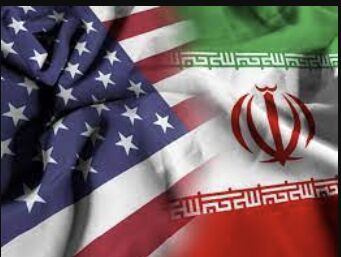Qatar Mediates Historic Deal: US and Iran Exchange Detainees, $6 Billion in Assets
The United States and Iran have agreed to release five detainees each in a historic agreement mediated by Qatar, alongside the transfer of $6 billion of unfrozen Iranian assets from South Korea. Critics argue it amounts to paying ransom for US citizens, but the White House defends the deal. The prisoner exchange, while significant, does not guarantee normalized relations between the two countries.
In a historic agreement mediated by Qatar, the United States and Iran have agreed to release five detainees each, in addition to the transfer of $6 billion of unfrozen Iranian assets from South Korea. The implementation of the deal was triggered by the confirmation of the fund transfer to bank accounts in Doha. The five American detainees held in Iran include Siamak Namazi, a businessman with dual citizenship who was detained in 2015 while visiting his family in Tehran. His father, Baquer Namazi, was also detained months later. Both were sentenced to 10 years in prison for alleged spying and cooperation with the US government.
Emad Sharghi, an Iranian-American businessman, was arrested in 2017 and sentenced to 10 years in jail on espionage charges. Morad Tahbaz, an Iranian-American environmentalist with British citizenship, was also detained in 2018 and sentenced to 10 years in prison. The identities of the fourth and fifth American detainees have not been disclosed, as families and the US government often prefer not to publicize such cases in hopes of securing their release quietly.
On the Iranian side, the five detainees to be released by the US include Mehrdad Moin-Ansari, Kambiz Attar-Kashani, Reza Sarhangpour-Kafrani, Amin Hassanzadeh, and Kaveh Afrasiabi. The transfer of Iran's frozen funds has drawn criticism from Republicans, who argue that it amounts to paying ransom for US citizens. However, the White House has defended the deal. It remains to be seen if this exchange of detainees and assets will lead to future agreements on issues such as Iran's nuclear program and its influence in the Middle East.
The agreement comes after months of diplomatic contacts, secret talks, and legal maneuvering, with Qatar playing a central role in the negotiations. Qatar hosted several rounds of clandestine indirect meetings between Tehran and Washington, initially focusing on the nuclear dispute but later shifting the focus to prisoner exchanges. The first public sign of progress was witnessed in August 2022 when four detained US citizens were allowed to move into house arrest. Washington later waived sanctions to facilitate the transfer of Iran's funds to banks in Qatar, which will monitor its expenditure on non-sanctioned goods. The freezing of Iran's funds in South Korea dates back to 2019 when the US placed a total ban on Iranian oil exports and imposed sanctions on its banking sector.
Iranian revenues of $7 billion were blocked in Seoul, and due to the depreciation of the South Korean currency against the US dollar, Iran has lost nearly $1 billion of its initially deposited assets. While the prisoner exchange marks a significant development in US-Iran relations, it is unclear if it will lead to normalized ties between the two countries. The Iranian clerical establishment has traditionally rallied against the US, and normalizing relations could weaken the authority and influence of the Islamic Republic. Supreme Leader Ayatollah Ali Khamenei views normalizing ties as crossing a red line that could harm the revolution's legitimacy and his domestic authority.




